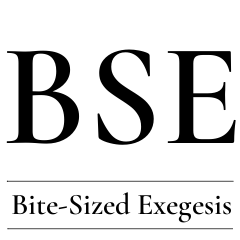Biblical Hebrew Vocabulary by Conceptual Categories is a lexical aid for students and teachers of Biblical Hebrew. This book is highly versatile with many uses not only for beginning students but also for intermediate and advanced students as well as for teachers.
Category Archives: Book and Product Reviews
Review: The Sabbath by Abraham Joshua Heschel
The Sabbath by Abraham Joshua Heschel (1951) is a classic of modern Jewish spirituality that has a lot to say as a dialogue partner for Christians wishing to explore what Sabbath observation might mean for them. At the heart of Heschel’s view of the Sabbath is a dichotomy in human life between space and time. Whereas humans in their empire building focus all of their energy on conquering the spatial dimensions by building monuments, sanctifying spaces, and rushing to and fro in search of material prosperity, the Sabbath Day is a palace or a cathedral in time.
Review: The CEB Study Bible
The CEB Study Bible is a well designed and excellently written study bible that distinguishes itself from the crowd by taking a more open-minded approach to the historicity, date of composition, and authorship of debatable sections of the Bible. However, the appeal of this study bible may be narrowed by its inextricably being tied to the CEB, a translation whose eager pursuit of a laudable goal (to produce a truly fresh translation free from wrongly embedded conservative Evangelical ideas) unfortunately results in uneven quality.
The Strengths and Weaknesses of the Common English Bible
The defining characteristic of the Common English Bible translation is its willingness to revisit and re-render traditional translations of well known biblical passages. While this is often a strength, it seems to be driven by a desire among those who commissioned the translation to distance themselves from conservative evangelicalism, and in many places this results in replacing good (albeit traditional) translations with highly questionable ones for no apparent scholarly reason.
Wars and Rumors of Wars – Karl Barth’s August 2, 1914 Sermon
Karl Barth’s sermon from August 2, 1914, encourages his listeners to have confidence in God and God alone in the face of the coming war. The 19th century liberal idea of human progress had been proven to be a faulty foundation for hope. Instead, one’s hope must come via a relationship with God through Jesus Christ.
Seated in the Heavenlies – Karl Barth’s July 26, 1914 Sermon
Karl Barth’s sermon from July 26, 1914 (just days after Austria-Hungary’s ultimatum to Serbia and just days before World War I finally erupted), is a reflection on the seeming incongruence of Ephesians 2:4-7 – and especially the idea that God has set us in the heavenly realm with Jesus – with the fearful turbulence of the times.
Review: A Unique Time of God: Karl Barth’s WWI Sermons
A Unique Time of God: Karl Barth’s WWI Sermons is a fascinating and highly readable collection of some of Barth’s earliest work that contains his later theology in embryonic form accompanied by a very fine introduction that sets these sermons in their proper historical, biographical, and theological contexts.
Studying the Bible: To Love It is To Know It
To really know someone or something one must first love that someone or something. This applies both to human relationships and to Bible study.
Quick Review: Amos, Hosea, Micah – An Archaeological Commentary
Amos, Hosea, Micah – An Archaeological Commentary, by Philip J. King, is a commentary about the 8th century BC world of the earliest of the written prophets that takes its data from the field of archaeology. It is difficult to find a similar book that is so accessibly and compactly presented.
Review: Biblia.com
Biblia.com is a free online Bible study environment. It comes with a good variety of Bible translations and resources, and it can be augmented with digital versions of books purchased from Logos.com and Vyrso.com. The interface is functional if a bit clunky.



